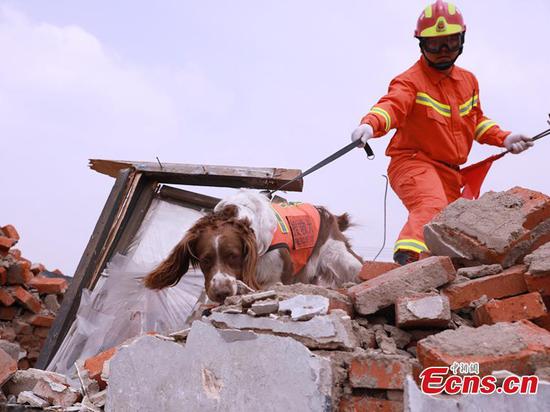The Chinese Association on Tobacco Control called on Wednesday for the city legislature in Hangzhou, Zhejiang Province, to ban smoking in all indoor public places.
The association made the appeal following a revised amendment to the tobacco control regulation in the provincial capital.
The revised draft, issued by the Hangzhou people's congress to its deputies in May, allowed designated smoking zones or rooms in nine types of public places such as entertainment venues, shopping malls and government office buildings, according to the association.
However, in the initial draft released by the congress in January to solicit public opinion, it was proposed that smoking should be banned in all indoor public places, indoor workplaces and public transport vehicles.
The association urged the congress not to allow the setting up smoking rooms or zones in public places in light of the effect on people's health and the city's image.
"It has been universally recognized that tobacco leads to many diseases and is a major health threat," said Hu Dayi, president of the association. "Setting up smoking zones or rooms cannot insulate the public from the damage of smoke particles, and even the most intricate indoor air conditioning system cannot effectively protect people from the harm of secondhand smoke."
Hangzhou's legislature made the revision with the reasoning that it is not necessary to totally ban smoking in indoor public spaces, and a total ban would also be difficult to enforce in the city's many big commercial complexes, Hu said.
Wang Ke'an, director of the Thinktank Research Center for Health Development, a tobacco control advocacy group in Beijing, said tobacco companies and authorities, which have long been a major obstacle to tobacco control in China, lobbied the legislature to revise the draft.
Sun Jiani, a tobacco control officer from the World Health Organization's China office, said the organization is very concerned about the tobacco control legislation in Hangzhou.
"The draft bans smoking in some public places, and allows designated smoking zones in other public places, and this worries the WHO a lot," she said. "Only a 100 percent smoke-free tobacco control regulation for public places can effectively protect people from the deadly harm of secondhand smoke.
"Allowing smoking rooms or smoking zones to be set up will only increase the difficulty in law enforcement. A complete tobacco control ban for indoor public places can be done in China, and regulations carried out in Beijing, Shanghai and Shenzhen have proved so."
The number of adult smokers in Beijing has fallen by about 200,000 since June 2015, when the city banned smoking in all indoor public places and workplaces, the city's health authorities said last week.


















































